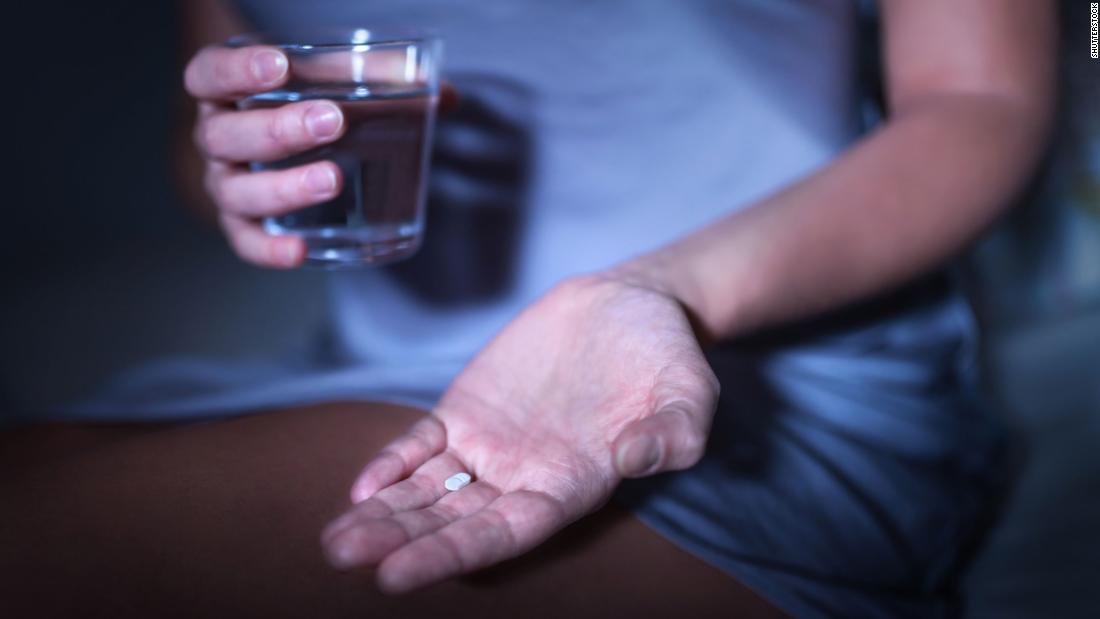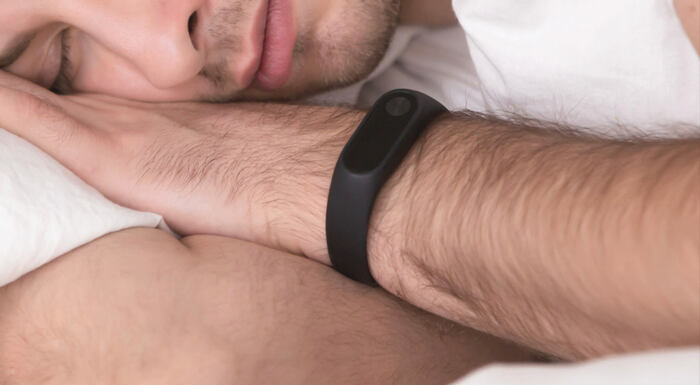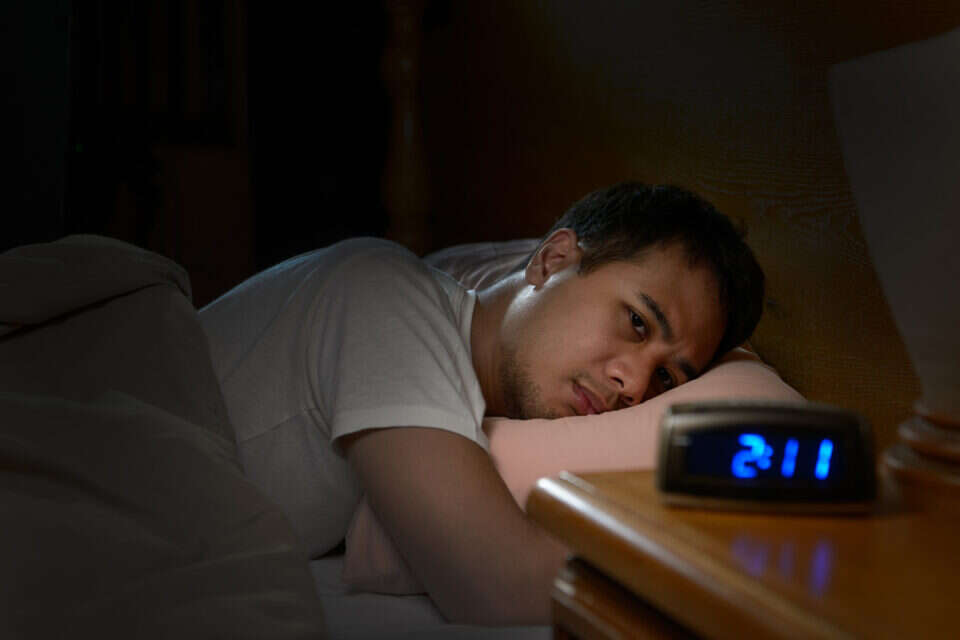Why you shouldn't smoke weed before bed 0:51
(CNN) --
More and more adults are taking over-the-counter melatonin to help them fall asleep, and some of them may be consuming dangerously high levels, according to a new study.
Although overall use among the U.S. adult population remains "relatively low," the study "documents a significant increase in melatonin use in recent years," said sleep specialist Rebecca Robbins, an instructor in the division of medicine of sleep at Harvard Medical School, who was not involved in the study.
The study, published Tuesday in the medical journal JAMA, found that in 2018 Americans were taking more than double the amount of melatonin they were taking a decade earlier.
Experts are concerned that the pandemic's negative impact on sleep may have further increased widespread reliance on sleeping pills, Robbins said.
"The taking of sleeping pills has been linked in prospective studies to the development of dementia and early mortality," he said.
Melatonin has been linked to headache, dizziness, nausea, stomach cramps, drowsiness, confusion or disorientation, mild irritability and anxiety, depression, and tremors, as well as abnormally high blood pressure short.
It can also interact with common medications and cause allergies.
Although its short-term use for jet lag, shift workers and people who have trouble falling asleep appears to be safe, long-term safety is unknown, according to the National Center for Complementary and Integrative Health at the National Institutes of health.
advertising
Do you suffer from insomnia due to the coronavirus pandemic?
Here are some tips to combat covid-somnia
Higher doses, poor regulation
Since 2006, a small but growing subgroup of adults are taking amounts of melatonin that far exceed the 5-milligram-a-day dose typically used for short-term treatment, according to the study.
However, pills for sale may contain levels of melatonin much higher than those advertised on the label.
Unlike drugs and foods, melatonin is not fully regulated by the US Food and Drug Administration (FDA), so there are no federal requirements for companies to review pills to make sure they contain the advertised amount of melatonin.
"Previous research found that the melatonin content in these unregulated, commercially available melatonin supplements ranged from -83% to +478% of the labeled content," says Robbins, co-author of the book "Sleep for Success! Everything You Must Know About Sleep But are Too Tired to Ask".
Companies are also not required to test their products for hidden harmful additives in melatonin supplements sold in stores and on the Internet.
Previous studies also found that 26% of melatonin supplements contained serotonin, "a hormone that can have damaging effects even at relatively low levels," according to the National Center for Complementary and Integrative Health, a department of the National Institutes of Health.
"We can't be sure of the purity of over-the-counter melatonin," says Robbins.
Taking too much serotonin by combining medications such as antidepressants, migraine medications, and melatonin can cause a serious drug reaction.
Mild symptoms include chills and diarrhea, while a more serious reaction can lead to muscle stiffness, fever, seizures, and even death if left untreated.
How our ancestors' way of sleeping can help today's poor sleepers
It's a hormone, not a herb
Because it's available over the counter, experts say many people think of melatonin as an herbal supplement or vitamin.
Melatonin is actually a hormone produced by the pineal gland, located deep in the brain, and released into the bloodstream to regulate the body's sleep cycles.
"There's a view that if it's natural, then it can't hurt," Robbins told CNN in a previous interview about melatonin's impact on children.
"The truth is, we don't really know the long-term implications of melatonin, for adults or children."
Another fact: studies have found that although the use of melatonin can be helpful in inducing sleep if used correctly, taken at least two hours before bedtime, the actual benefit is small.
"When adults took melatonin, it decreased the time it took them to fall asleep by four to eight minutes," Dr. Cora Collette Breuner, a professor in the department of pediatrics at University of Washington Seattle Children's Hospital, told CNN in March.
"So for someone who takes hours to fall asleep, probably the best thing to do is turn off their screens, or get 20 to 40 minutes of exercise a day, or not take any caffeinated products," Breuner said.
"These are all sleep hygiene tools that work, but people are very resistant to doing them. They'd rather take a pill, right?"
How much do you need to sleep?
depends on your age
train the brain to sleep
There are other proven sleep tips that work just as well, if not better, than sleeping pills, experts say.
The body begins to secrete melatonin in the evening.
What do we do in our modern culture?
Using artificial light to keep us awake, often long after the body's normal bedtime.
Research found that the body slows or stops melatonin production if exposed to light, including blue light from our smartphones, laptops, and the like.
"Any LED spectrum light source can further suppress melatonin levels," said Dr. Vsevolod Polotsky, who directs basic sleep research in the division of pulmonary and critical care medicine at Johns University School of Medicine. Hopkins, in a previous CNN interview.
So stop using those devices at least an hour before you want to go to sleep.
Do you like to read to sleep?
That's fine, experts say, read a physical book in dim light or use an e-reader in night mode.
"Digital light will suppress the circadian drive," Polotsky says, while a "dim reading light won't."
Sleep hygiene: eight ways to train your brain to sleep better
Other tips include keeping the bedroom temperature at cooler temperatures, 15-20°C.
Experts say that we sleep better if we are a little cool.
Establish a bedtime ritual by taking a hot bath or shower, reading a book, or listening to soothing music.
You can also try deep breathing, yoga, meditation, or gentle stretching.
Go to bed and get up at the same time every day, even on weekends or days off, experts say.
The body likes routine.
If your doctor prescribes melatonin to help with jet lag or other minor sleep problems, use melatonin "short-term," says Robbins.
If you plan to use melatonin as a short-term sleep aid, try to purchase pharmaceutical-grade melatonin, she advised.
To do this, look for a seal that shows the product has been tested by the US Pharmacopeial Convention's Dietary Supplement Verification Program, an independent, nonprofit entity.
Sleep qualityMelatonin








